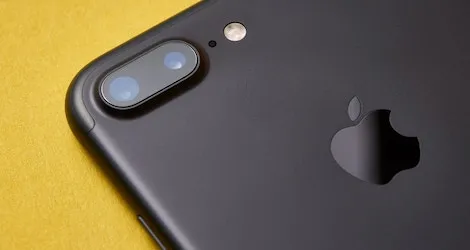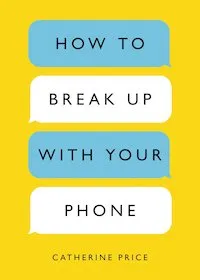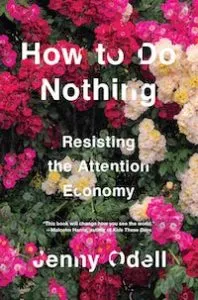
Put Down Your Phone: Books About Smartphones and the Consequences of Constant Connection
I was starting to become concerned about my phone—or, more particularly, how often I was looking at my phone. When my iPhone was updated with the Screen Time feature, I started seeing numbers that I really didn’t like. When I really thought about it, realized that I was using my phone to deal with uncertainty, boredom, and other unpleasant feelings instead of, well, feeling those feelings. I knew that I needed to set some hard limits to stop me from spending the equivalent of one entire workday every week on Twitter (I don’t even tweet!)
Maybe your relationship with technology is fine. Maybe you use it to read books on the Kindle app or on Libby—I have to send my library books to my Kindle because otherwise I’ll start ‘multitasking’ and not absorbing any information. For the sake of argument, let’s assume you are like me and you’ve just realized that you are wasting valuable reading hours getting angry at your relatives on Facebook. There are books about smartphones that can help with that. (The time, that is. Not your relatives.)
Your Happiness was Hacked: Why Tech Is Winning the Battle to Control Your Brain—and How to Fight Back by Vivek Wadhwa and Alex Salkever
Smartphones can take advantage of vulnerabilities in brain function (for example, why are Facebook’s notifications red?), causing us to overindulge and, in some cases, damage our lives, relationships, and ability to concentrate. The authors, understanding that most of us do not want to completely cut off all digital devices, provide a guide for regaining control from the constant digital noise.
 How to Break Up with Your Phone: The 30-Day Plan to Take Back Your Life by Catherine Price
How to Break Up with Your Phone: The 30-Day Plan to Take Back Your Life by Catherine Price
There are currently more holds for this book at my library than there are for Michelle Obama’s Becoming, and that seems to signify that there are a lot of people trying to work their way to a healthier tech balance. This guide also discusses what smartphones are doing to our ability to focus, an ability I thought I was just losing as I got older but which has been affected by how many things there are vying for my attention at any given time. Price offers readers a 30-day plan to take back your life from your devices.
Digital Minimalism: Choosing a Focused Life in a Noisy World by Cal Newport
The approach in this book is to really consider how you use the tools available to you and what or whether they are adding to your life. On the author’s advice, I deleted a couple of social media accounts I wasn’t really using and the apps for Facebook and Twitter (because the phone browser versions are more annoying to use and thus one is disinclined to spend much time on them). There were some less practical suggestions (I don’t think it’s really do-able for people to institute texting office hours) but there was a lot here for people who want to make radical changes or even just small, incremental ones.
Bored and Brilliant by Manoush Zomorodi
What if the trick to creativity is letting yourself be bored? Are we missing out on boredom by having all of our friends in our pocket at any given time? Zomorodi gives readers practical steps to take to unplug and make space for the hidden benefits of boredom.
 How to Do Nothing: Resisting the Attention Economy by Jenny Odell
How to Do Nothing: Resisting the Attention Economy by Jenny Odell
Is resisting being advertised to 24/7 a revolutionary act? Odell advocates paying “a new kind of attention” to arrive at more meaningful happiness, and questions whether we really need all of this technology to be someone else’s (hint: it’s capitalism’s) version of productive.
Aside from these books about smartphones, there are also apps like Moment (a more robust version of Screen Time) and Forest (a timer app that won’t let you use your phone for a specified period of time without killing a virtual tree). I also love my ugly bullet journal and choose that over most of the productivity tools my phone offers.



 How to Break Up with Your Phone: The 30-Day Plan to Take Back Your Life
How to Break Up with Your Phone: The 30-Day Plan to Take Back Your Life How to Do Nothing: Resisting the Attention Economy
How to Do Nothing: Resisting the Attention Economy







